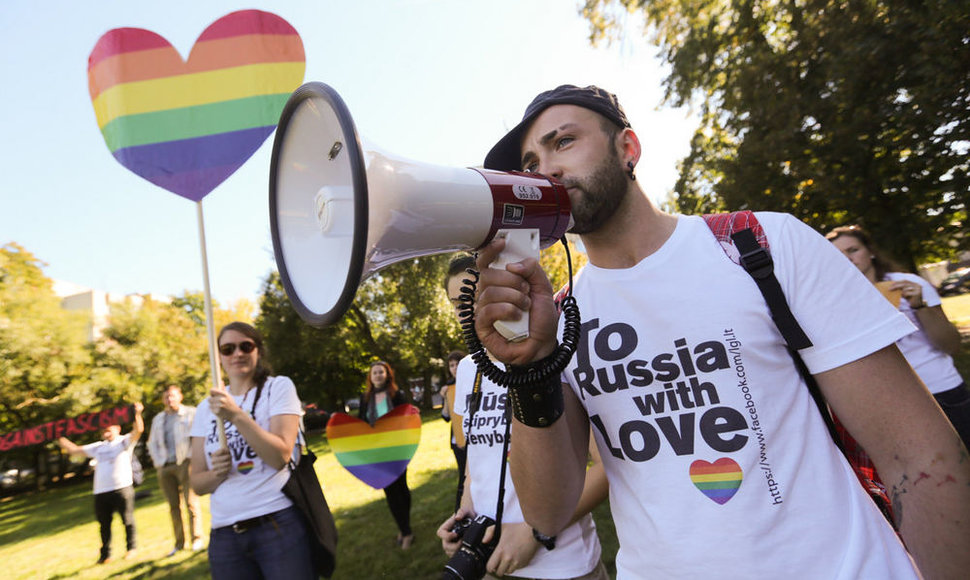The Sunday's event in Vilnius was part of a global campaign which seeks to draw attention to homophobic legislation in Russia, outlawing any positive representation and advocacy of LGBT rights, and growing violence against non-heterosexual people in the country.
"We want to show solidarity with our friends in Russia, we are doing it with means that are legal, but at the same time, it is a strong message to our own community, society, our government that similar laws are in power in Lithuania which will soon rival Russia with its homophobic legislative initiatives," said Vladimir Simonko, leader of the Lithuanian Gay League.
No kisses
Aliona Polujanova, one of the organizers of Sunday's event, told 15min that in many European countries and the United States, campaigners expressed support to Russian LGBT people by staging kissing campaigns. In Lithuania, she said, they opted for a less flashy approach.
"Today, the entire world is staging a campaign and we have joined an international event. In other countries, same-sex couples come to [Russian] embassies and kiss, while we decided on a different way to express our civil, political position. We have nothing against kisses, but we chose something else," she said.
She said that Lithuanians would probably not have dared to show up for a public kissing campaign: "Had we invited people to kiss, I think fewer would have showed up," Polujanova said. Over thirty people took part in the rally.
She admitted that the organizers did not expect a response from the Russian Embassy.
"Embassy staff do not necessarily approve of what is happening in Russia, but they will do whatever the Kremlin tells them to," she smiled.
Of the Lithuanian political parties, only the Liberal Movement, a center-right party currently in the opposition, was represented at the event. The party's spokesman Tomas Revesas said that the reason the liberals joined the protest rally was not just to defend LGBT rights, but to protest against any human rights violations.
Counter-protesters
A small opposing rally was also staged near the Russian Embassy. The group, led by Vytautas Šustauskas, a notorious politician who has gotten in trouble with the police after the Baltic Pride march last July, held posters expressing support to "traditional values" and opposition to "gay propaganda."
The protesters, otherwise known for their vehement intolerance of gays and lesbians, were rather temperate in their behaviour. Several police officers, who observed the event, convinced Šustauskas to keep his distance from the LGBT campaigners and express his opposition quietly.



















